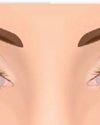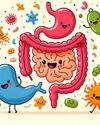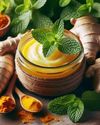The hair on the head is most striking feature for every person. For a long time, hair has been considered more than just a biological feature, and is more often center of beautification. For women, hair is an ornament that has transformed their beauty at higher level. Black hair symbolizes the younger age, youthfulness, energy and active life. As we grow older, hair turns to gray and silver white. Hence gray hair and white hair symbolizes the old age, sluggish and inactive life. Today everyone wants to look younger, energetic, enthusiast and visually appealing to other people. Hence they hide gray hair by applying color to hair and this process is called “Hair coloring – Hair dyeing”. Hair coloring is more of cosmetic reason and is to hide their gray hairs by old age people. Younger people color their hair as a fashion.

Hair coloring was done earlier by hair dressers at saloon. Today hair coloring is very simple, user-friendly and can be done at their house in 30-40 minutes.
History of Hair coloring –
The extraordinary history of hair color can be traced back to Sumerians 2000 BC. Nobel Sumerians used to color their gray hairs with golden dye, using silver or gold combs. Ancient Egyptians, Romans, and Greeks began to use hair color which was made from plant and animal extracts regularly. Egyptian women in 1500 BC, colored their hair using henna plant extracts. The Romans believed that hair dyeing and coloring was a symbol of woman’s eroticism, and highlighted her gracefulness and elegancy. By 27 BC, hair dye became a much accepted trend, and both men and women in Rome used hair color as a way of enhancing their looks and appearance. Roman Empire insisted prostitutes to color their hair with yellow color or to wear yellow color wig to indicate their profession. Prostitutes were coloring their hair with ashes of burned plants, flowers and nuts to achieve the yellow hue.
Hair dyes were made using henna, crushed nut shells, berries, and vinegar. Red hair dye was prepared by fermenting leeches in vinegar for two months. This mixture was applied on the hair, which was then exposed to the sun for hours to get red hue.
In the 1860s, hydrogen peroxide was a common option for hair bleaching. With time, this came to be known as blond dye, until the 1930s. Hydrogen peroxide was used along with other ingredients like ammonia and soap powder. This combination damaged the hair, and burned the scalp. Soon this combination became less popular.
This story is from the September 2017 edition of Health Vision.
Start your 7-day Magzter GOLD free trial to access thousands of curated premium stories, and 9,000+ magazines and newspapers.
Already a subscriber ? Sign In
This story is from the September 2017 edition of Health Vision.
Start your 7-day Magzter GOLD free trial to access thousands of curated premium stories, and 9,000+ magazines and newspapers.
Already a subscriber? Sign In

Ptosis and Vision - How Droopy Eyelids Affect Eye Health
Ptosis, also known as droopy eyelid, is a condition characterized by the sagging of one or both upper eyelids. While it can occur at any age, ptosis often affects older adults due to the natural aging process.

A Day in the Life of a Happy Gut A Blueprint for Wellness
Your gut is more than just a digestion powerhouse—it’s the control center of your overall health.

Doctors warn diabetes patients about risk of smoking
People who smoke are also at much higher risk of developing diabetes compared to non-smokers

The Impact of Negative Energy on Creativity and Productivity
Negative energy refers to feelings, thoughts, or environmental factors that drain mental and emotional resources. It can originate from stress, toxic relationships, cluttered spaces, or even persistent selfdoubt. Often, it manifests subtly, leaving individuals feeling overwhelmed, unmotivated, or stuck.

Pathology - The Cornerstone of Modern Medicine and a Fascinating Field of Study
The importance of Pathology in diagnosing diseases, guiding medical care, and advancing medical knowledge cannot be overstated. For medical students contemplating their future, pathology offers a fascinating and essential field of study, one that is integral to the future of medicine.

Anxiety Disorder
Anxiety: Understanding and Treatment

Marital Enrichment & Pathway Towards Health
Marriage has been a great source of contentment and bliss. Such marriages have significant positive health implications. It becomes important for the spouses to be trained in techniques which can enrich their marital bond and thereby their health and well-being.

The Rise of Ayurvedic Pain Balms in India
The era of Ayurvedic pain balms in India has indeed begun, and it's gaining momentum. With the increasing awareness of the benefits of natural and holistic healing, Ayurvedic pain balms are becoming a popular choice for pain management.

The Role of Jaggery in Traditional Medicine and Healing
Jaggery, a traditional, unrefined sweetener made from sugarcane or palm sap, has been a part of human diets and healing practices for centuries. While it is often seen as a natural alternative to refined sugar, jaggery is also revered in various cultures, especially in Ayurvedic and traditional healing systems, for its therapeutic properties.

Gestational Diabetes
As per the latest news sources, about 15-20 percent of all pregnancies across India are affected by Gestational Diabetes. By adopting these precautionary measures, women with gestational diabetes can improve outcomes for both themselves and their babies.